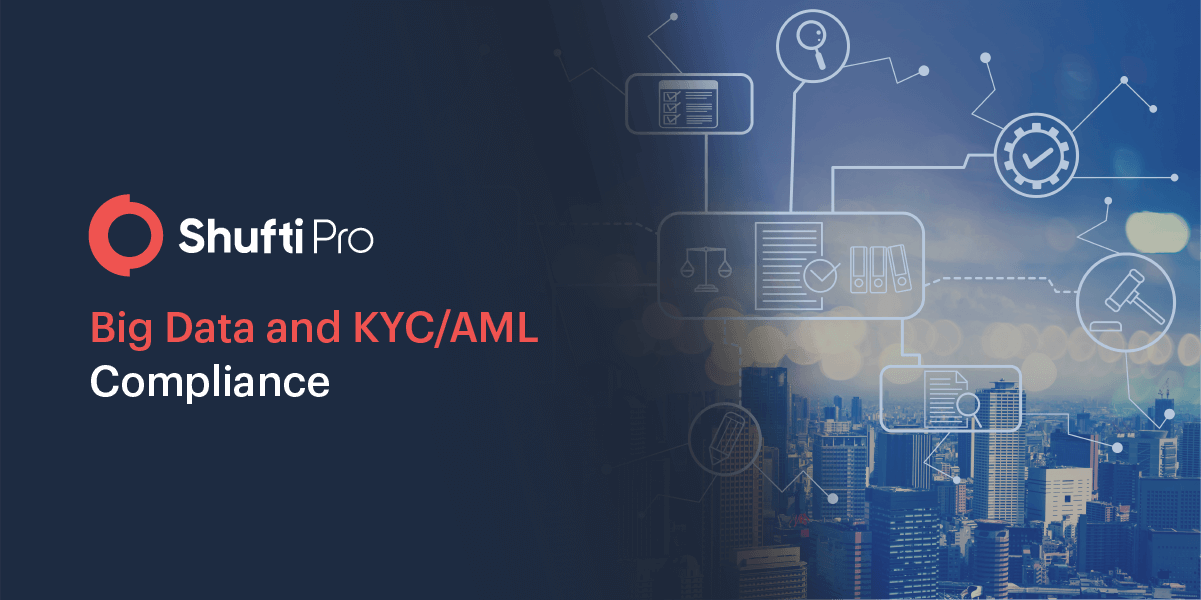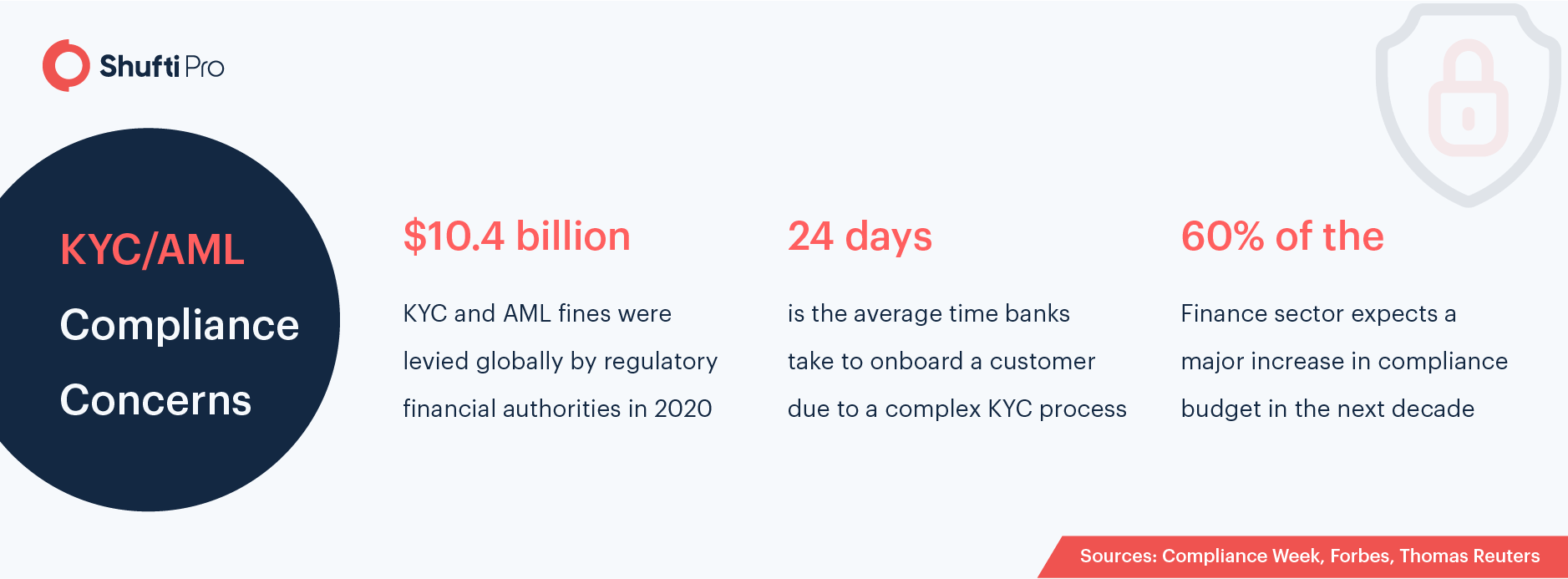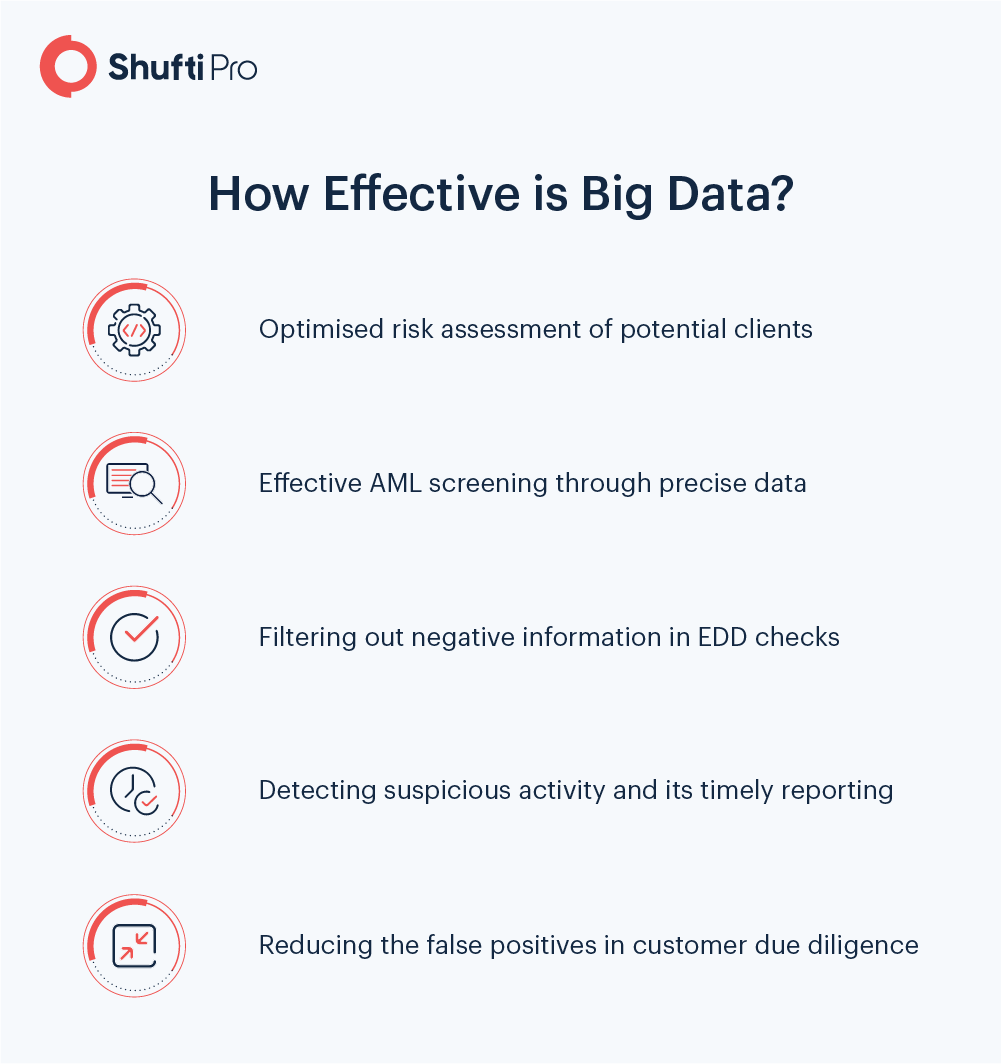AML and KYC Compliance – Big Data Optimising the Regulatory Landscape

Today, different sectors face an influx of user data that they need to process and analyse. To deal with this big data – huge volumes of information – it is necessary that enterprises use state-of-the-art analytics tools to cater to their business needs. Moreover, the corporate sector is faced with a wide range of obligations including due diligence requirements during customer onboarding and complying with Anti Money Laundering standards effectively.
The increased digitisation of the financial sector has created room for bad actors to conduct crimes. In this regard, financial watchdogs have become more active in expanding the regulatory landscape by urging businesses to develop technologically sound solutions for better compliance. This blog discusses how regulatory technology paired with Big Data creates opportunities for effective AML/KYC compliance.
What is Big Data in KYC/AML?
Big data analytics is the collection of tools and techniques that are used to perform intelligent analysis of large data sets. When it comes to corporate obligations like KYC and AML, it allows enterprises to prevent financial crime while keeping compliance measures intact using predictive analysis methods.
The Influx of Data in the Regulatory Landscape
Engagement in the Digital Space
Since the advent and evolution of technology, customers are turning towards digital solutions rapidly. Since they offer a good deal of convenience and user security, businesses also tend to develop such systems that best align with their end-user needs. Companies that adopt digital-only systems have a 64% greater chance of meeting their business goals, as per a study by Adobe. The advent of artificial intelligence and financial technology services is one such development that is transforming the corporate sector and how customers interact in the digital space.
The Need to Protect Financial Systems
Banking on the technology trends are not only businesses but also cybercriminals who exploit the legal financial system by using sophisticated ways and means. This makes it increasingly important for companies to invest in better Know Your Customer (KYC) practices so that identity theft instances can be taken down, and that financial crime is reduced.
The fact that there are a lot of customers willing to open accounts or perform transactions with businesses on a daily basis calls for a robust infrastructure for identity verification of potential clients. In this regard, regulatory technology purpose-built on customer risk profiling and intelligent transaction monitoring has become the need of the hour.

Supervising Compliance Standards
Given the surge in online user engagement and the heightened privacy and enterprise data breaches, global regulators have stepped up in enforcing more stringent compliance obligations. Now, entities operating in the financial and corporate sector need to develop a risk-based AML approach towards meeting the regulatory requirements.
Regulatory watchdogs like FATF and FinCEN make sure that the financial industry remains in conformity with Anti Money Laundering compliance laws. Not complying with these standards often results in hefty fines and penalties that can leave an organisation in financial loss as well as a declined market reputation.
Big Data – An Industry-centric Approach Towards AML/KYC
Effective Due Diligence
Before business clients, whether they are partner entities or potential customers, associate ties with a certain organisation, they are required to take part in KYC and Customer Due Diligence procedures. These practices are aimed at reducing the possibility of criminal identities opening accounts with legitimate businesses to carry out money laundering. Oftentimes, businesses take too long to onboard new customers and the KYC process is not time and resource-efficient.
Recently, the inclusion of big data analytics in customer identification systems is turning the tables in favour of enterprises. Using these intelligent tools, data gathering methods can be significantly optimised especially for banks that take up to weeks to gather customer data from multiple sources. Through the use of AI-based algorithms, the large amount of data can then be minimised by selecting only information relevant for the KYC verification.

Monitoring High-risk Transactions
A transaction monitoring system is the cornerstone of any AML compliance program. An intelligent data-driven solution analyses customer transactions and categorises them as suspicious or legitimate based on certain threshold values. This automates the process of generating Suspicious Activity Reports (SARs) that are sent to financial regulators.
These act as a fine measure in countering monetary crime and possible terrorism financing. AML transaction monitoring software utilises data analysis and machine learning tools to reduce the number of false positives to flag and report unusual high-risk transactions, thereby eliminating the need for manual and tedious checks.
Adverse Media & Sanction Screening
Big data methods offer a robust mechanism to filter out unnecessary and redundant information when it comes to Enhanced Due Diligence. They allow enterprises and financial institutions to acquire data from different sanction lists, extract essential information from them, and carry out AML screening checks on high-risk clients. This often starts with a risk assessment of the client where they assigned a particular score based on the number of matches in those certain watch lists.
If the customer performs large transactions frequently, or if they belong to a high-risk country, adverse media screening, PEP compliance checks and other Watchlist screening checks are necessary. Big data analytics tools help organisations to connect data points by using pattern recognition models to perform risk-based customer profiling, ultimately leading to effective compliance with AML and KYC laws and regulations.
Compliance with KYC and AML Laws
In an effort to prevent money laundering, financial entities are faced with a lot of stringent regulatory criteria. These checks, at times, are impossible for manual verification experts to carry out on their own. Considering the regulatory burden, big data automation is a viable solution that suitably addresses compliance obligations. Enterprises are now using these intelligent solutions to not only meet AML requirements but to save them valuable time by performing reliable and time-efficient KYC of customers in light of compliance standards.
What Does Shufti Have to Offer?
Shufti is a leading industry player that offers a robust AML screening solution based on artificial intelligence models to identify and take down potentially high-risk entities. Businesses that offer financial services can now verify their partner entities by conducting comprehensive background checks on beneficial owners to reduce the possibility of fraud.
Shufti follows a risk-based approach to conduct batch screening of clients through its real-time screening solutions so that businesses can stay one step ahead of bad actors. By taking into account data available from international sanction lists, Shufti maintains risk profiles of customers for seamless automated monitoring.
Are you in search of a comprehensive AML screening solution? If so, get in touch with our experts.

 Explore Now
Explore Now













